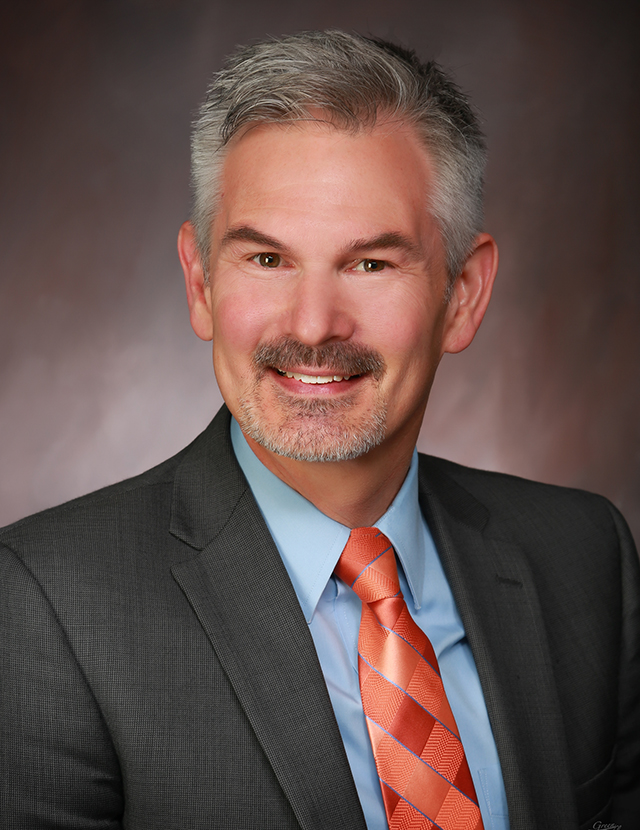Mark Smith stopped calling it a “workforce crisis” a while ago. During the COVID-19 pandemic, more than 100,000 nurses left their positions, and while many of them returned in some capacity, Smith says he did not rely on best-case scenarios to direct his efforts.
“I just call this our workforce reality,” explains Smith, who is the group vice president of workforce insights, optimization, and staffing at Providence, one of the largest not-for-profit healthcare systems in the United States. “We’re never going to have more caregivers again than what we have today. It’s shrinking every day, and once you accept that, your mind begins opening to all the possibilities of, well, how to face reality.”
Smith isn’t discouraged, and maybe that’s what kept him at the front lines of healthcare HR innovation since 2003. The leader knows what’s at stake, and he’s got more than a few innovative ideas for how to tackle a talent gap in a field combatting an aging baby boomer generation, not to mention a worldwide pandemic and its continuing ripple effects.
“[The healthcare workforce is] shrinking every day, and once you accept that, your mind begins opening to all the possibilities of, well, how to face reality.”
Mark Smith
When considering the nursing shortage, Smith’s approach is well ahead of the curve. He, along with key clinical partners, has begun incubating a clinical gig workforce, a pool of almost three hundred caregivers who are available to pick up unclaimed shifts at Providence healthcare centers. In the thirteen months prior to his May 2023 interview with American Healthcare Leader, those professionals picked up fifteen thousand shifts.
“These workers are able to provide some relief for our full-time caregivers,” Smith explains. “It has allowed us to expand our talent ecosystem with people who may not want to return to a traditional employment setting but have great skills and abilities to provide care.”
That ecosystem expansion has created innovation in other areas. Smith says the clinical gig workforce has allowed his team to reevaluate how to strategically invest in contingent workforce options.
During the pandemic, agency work was critical in filling roles left vacant by departing healthcare workers. That need landed Smith on a team with other forward-thinking leaders to completely rethink strategy around contingent workforce management. Providence implemented a modern platform vendor management system (VMS) to accommodate acquisitions, viewing credentials, and gathering other employee information.
“The platform VMS is where we are really able to start thinking about harnessing the power of the total talent ecosystem. On one platform, we gain direct access to talent supply, clinical gig workers with app-based deployment, and vendor management with advanced data insights,” Smith explains. “From a human resources perspective, it’s given us a chance to demonstrate operational acumen, partner cross-organizationally, and show how innovative solutions can lead to critical operational outcomes.”
Smith and his team have also drilled down on what he calls job description simplification. By understanding core tasks, requirements, education, and licensure issues—a study made easier with analytical tools—Providence can break down roles to understand, for example, if certain roles may not require certification compared to roles that have make-or-break hiring requirements.
“It’s just about looking at jobs differently by having certain jobs be ‘certification preferred’ but not required,” Smith says. “By leveraging all of the great work our workforce development team is providing in terms of training for certification, it opens up a whole new population to a job where they’ll be able to work and be paid to prepare for certification, for example, become certified medical assistants.”
“Our mission is my mission.”
Mark Smith
Smith is also excited at the insights and optimization some simple artificial intelligence (AI) and robotic processes have provided. His team, in partnership with operational, clinical, and IT leaders, has been able to automate the tasks required to create schedules for various healthcare settings.
A process that could take anywhere from three to twenty hours can now provide three different scheduling options in thirty minutes. Those schedules can then be exported directly into Excel and Providence’s timekeeping system, where caregivers can access it directly and choose their own schedules in many cases.
“We’re so excited about the ability to reduce the administrative burden for leaders by understanding a process they need to be focused on regularly, automating it, and giving them more time to be making important decisions and handling critical tasks,” he says.
Smith has been in HR for thirty-two years, but his excitement around innovation could make you believe he’s fresh out of school. The leader says he’s continually fascinated by how a seemingly intangible outcome can be made clearer by breaking it down into actionable steps. It’s as true for the newest tech and AI innovations as it was for manual punch cards.
“Mark is a seasoned leader, one who predicts trends and is able to pivot quickly to ensure he is doing what is best for the thousands of employees at Providence,” says Will Patterson, former ICU trauma nurse and CareRev founder and CEO. “When the first case of COVID appeared in Washington state, Mark was able to quickly support his workforce through flexible technology solutions like CareRev, and now, three years later, the Providence workforce is stronger because of his foresight. We are proud to partner with Mark to offer flexible, easy-to-use solutions to complement Providence’s workforce strategy.”
But what has kept Smith, an executive always interested in the next possible solution, at Providence for twenty years? His heart and his mission.
“Working at Providence is a blessing,” Smith says. “My job is to make sure that I’m doing work that is in service to our mission of Christ’s healing ministry, particularly for the poor and vulnerable. Our mission is my mission. When our caregivers and our leaders feel like they have everything they need to take care of our patients, then I know the work I’m doing is making a difference.”
With 117,000 total caregivers, Smith says there is still a great deal that can be done at Providence. But while many others in the space may view the current climate as one of the toughest in memory, Smith chooses to see it differently. That has made all the difference.
Health systems are using CareRev’s marketplace platform to connect with experienced, flexible healthcare professionals in their own communities and reduce staffing gaps with on-demand shifts. Our automation eliminates manual processes and streamlines credentialing, allowing facilities to quickly connect to local, prequalified professionals; our ML/AI technology optimizes workforce strategies to meet current and future demands. Having a technology-enabled talent pipeline allows facilities to support their core staff, rely less on expensive travelers, and control labor costs. CareRev serves over 70-plus hospitals and over 540-plus outpatient centers and skilled nursing facilities with more than 22,000 clinical professionals in our marketplace. Visit CareRev.com to learn more.
Aya Healthcare operates the nation’s largest digital platform for the flexible workforce, connecting employers with the largest healthcare talent pool for full-time, part-time and gig employment. Thousands of healthcare organizations trust Aya for their workforce fulfillment and mobilization needs. Customize your solution at ayahealthcare.com.



